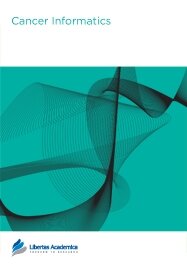

Publication Date: 09 May 2011
Type: Database Review
Journal: Cancer Informatics
doi: 10.4137/CIN.S7226

Background: Some oncogenes such as ERBB2 and EGFR are over-expressed in only a subset of patients. Cancer outlier profile analysis is one of computational approaches to identify outliers in gene expression data. A database with a large sample size would be a great advantage when searching for genes over-expressed in only a subset of patients.
Description: GENT (Gene Expression database of Normal and Tumor tissues) is a web-accessible database that provides gene expression patterns across diverse human cancer and normal tissues. More than 40000 samples, profiled by Affymetrix U133A or U133plus2 platforms in many different laboratories across the world, were collected from public resources and combined into two large data sets, helping the identification of cancer outliers that are over-expressed in only a subset of patients. Gene expression patterns in nearly 1000 human cancer cell lines are also provided. In each tissue, users can retrieve gene expression patterns classified by more detailed clinical information.
Conclusions: The large samples size (.24300 for U133plus2 and .16400 for U133A) of GENT provides an advantage in identifying cancer outliers. A cancer cell line gene expression database is useful for target validation by in vitro experiment. We hope GENT will be a useful resource for cancer researchers in many stages from target discovery to target validation. GENT is available at http://medical genome.kribb.re.kr/GENT/ or http://genome.kobic.re.kr/GENT/.
PDF (2.24 MB PDF FORMAT)
RIS citation (ENDNOTE, REFERENCE MANAGER, PROCITE, REFWORKS)
BibTex citation (BIBDESK, LATEX)
XML
PMC HTML
Cancer Informatics has become an increasingly important source for research in the methodology of cancer genomics and the novel use of informatics technology. I have been impressed by the journal's contents and have been very gratified by the number of accesses to my recent publication. Cancer Informatics has filled an important gap in cancer research journals.

All authors are surveyed after their articles are published. Authors are asked to rate their experience in a variety of areas, and their responses help us to monitor our performance. Presented here are their responses in some key areas. No 'poor' or 'very poor' responses were received; these are represented in the 'other' category.See Our Results
Copyright © 2013 Libertas Academica Ltd (except open access articles and accompanying metadata and supplementary files.)
FacebookGoogle+Twitter
PinterestTumblrYouTube